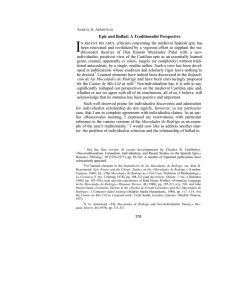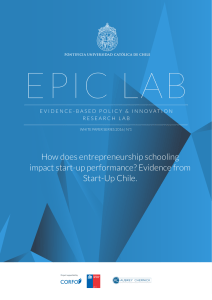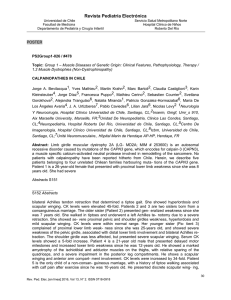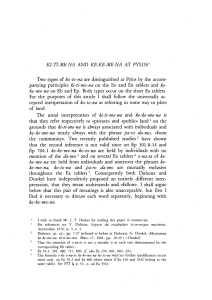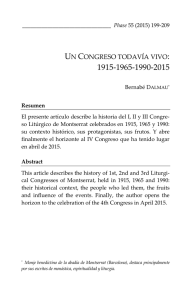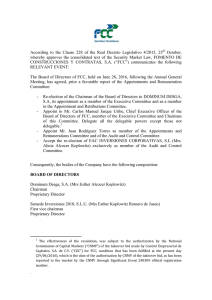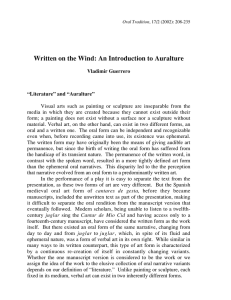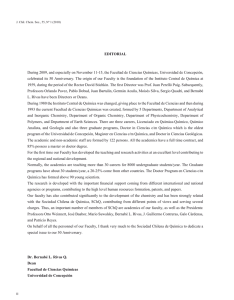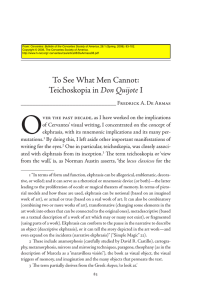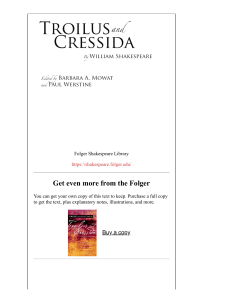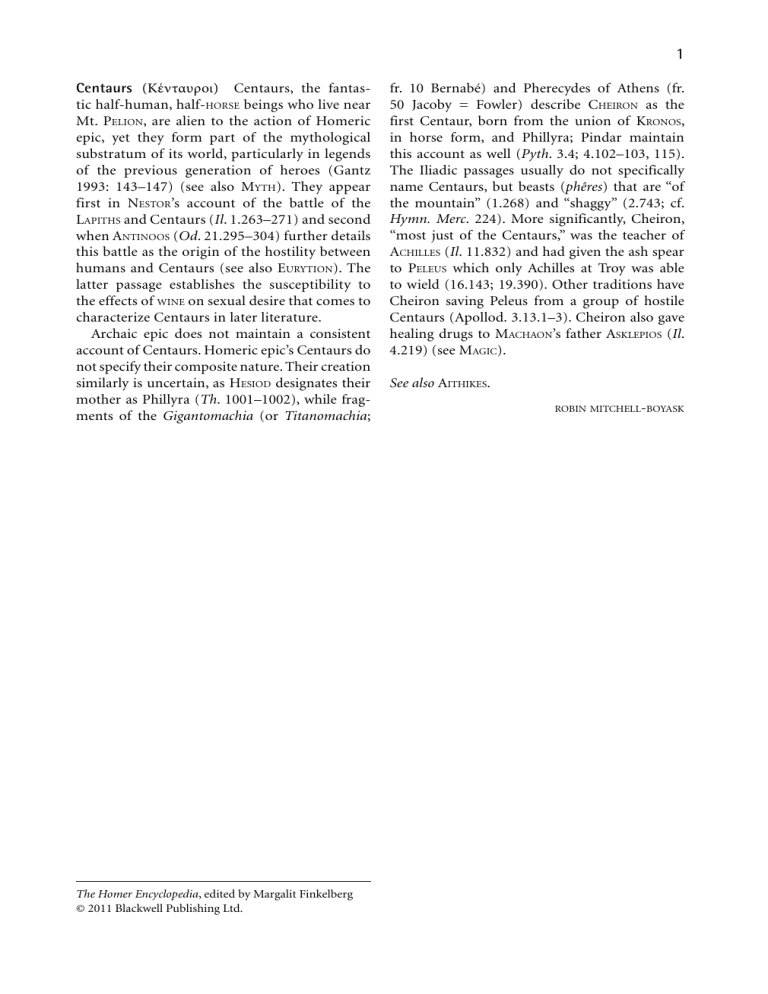
1 Centaurs (Kένταυροι) Centaurs, the fantastic half-human, half-HORSE beings who live near Mt. PELION, are alien to the action of Homeric epic, yet they form part of the mythological substratum of its world, particularly in legends of the previous generation of heroes (Gantz 1993: 143–147) (see also MYTH). They appear first in NESTOR’s account of the battle of the LAPITHS and Centaurs (Il. 1.263–271) and second when ANTINOOS (Od. 21.295–304) further details this battle as the origin of the hostility between humans and Centaurs (see also EURYTION). The latter passage establishes the susceptibility to the effects of WINE on sexual desire that comes to characterize Centaurs in later literature. Archaic epic does not maintain a consistent account of Centaurs. Homeric epic’s Centaurs do not specify their composite nature. Their creation similarly is uncertain, as HESIOD designates their mother as Phillyra (Th. 1001–1002), while fragments of the Gigantomachia (or Titanomachia; The Homer Encyclopedia, edited by Margalit Finkelberg © 2011 Blackwell Publishing Ltd. fr. 10 Bernabé) and Pherecydes of Athens (fr. 50 Jacoby = Fowler) describe CHEIRON as the first Centaur, born from the union of KRONOS, in horse form, and Phillyra; Pindar maintain this account as well (Pyth. 3.4; 4.102–103, 115). The Iliadic passages usually do not specifically name Centaurs, but beasts (phêres) that are “of the mountain” (1.268) and “shaggy” (2.743; cf. Hymn. Merc. 224). More significantly, Cheiron, “most just of the Centaurs,” was the teacher of ACHILLES (Il. 11.832) and had given the ash spear to PELEUS which only Achilles at Troy was able to wield (16.143; 19.390). Other traditions have Cheiron saving Peleus from a group of hostile Centaurs (Apollod. 3.13.1–3). Cheiron also gave healing drugs to MACHAON’s father ASKLEPIOS (Il. 4.219) (see MAGIC). See also AITHIKES. ROBIN MITCHELL-BOYASK
